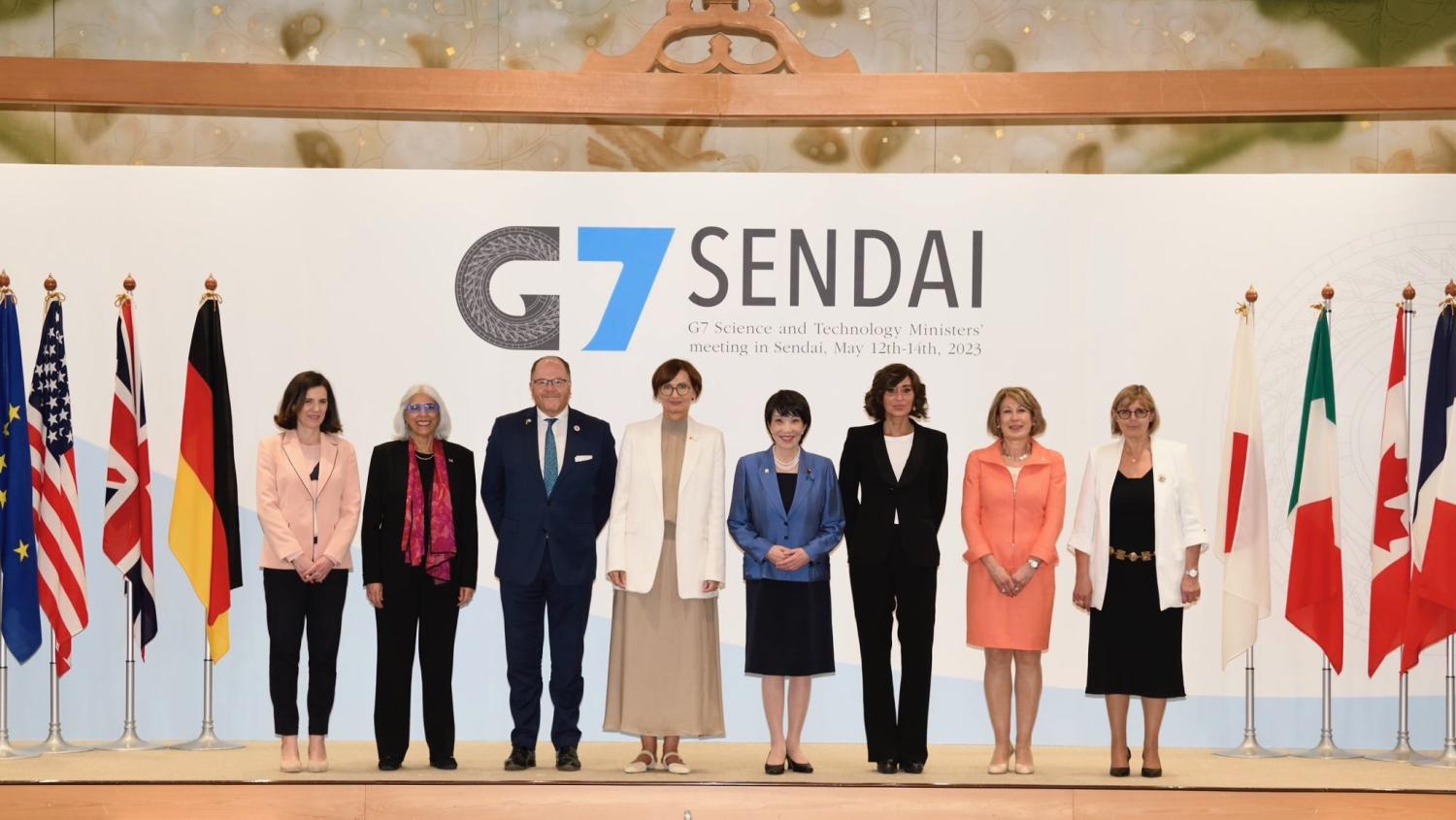Support from G7 science ministers on dark and quiet skies
Their stance was captured in an official communiqué adopted ahead of the G7 Summit in Hiroshima, Japan. The International Group of Seven (G7) consists of Canada, France, Germany, Italy, Japan, the United Kingdom - all of which are involved in the SKA project - plus the United States and the EU.
"We recognize the importance of continued discussion, in the UN COPUOS and International Telecommunications Union (ITU) frameworks, as well as with the International Astronomical Union (IAU) on the impact of large constellations of satellites on astronomy for the protection of the dark and quiet skies." - G7 Science and Technology Ministers’ Communique
Telescopes operating in the optical, near-infrared, and radio wavelengths can be affected by the large numbers of satellites being launched in near-Earth orbit. The IAU Centre for the Protection of the Dark and Quiet Sky from Satellite Constellation Interference (IAU CPS), co-hosted by the SKAO and NOIRLab, was created to address the issue. Through mitigations and close collaboration with industry, it aims to protect the substantial government investments in astronomical research facilities and achieve productive co-existence between such facilities and the satellite constellations.
Responding to the publication of the communiqué, SKAO Director-General Prof. Philip Diamond said: “We’re delighted to see the support of our member countries for continued discussion on the impact of satellite mega constellations on astronomy expressed at the highest levels of government. The G7 science and technology ministers highlight several international mechanisms to address the protection of dark and quiet skies, all of which the SKAO is actively involved in to identify solutions.”
The SKAO continues to engage with all parties, including governments, astronomical societies, and satellite operators, to advocate for technical and policy-level solutions that minimise the impact of such constellations on the observatory and more generally on radio astronomy facilities.
The IAU, the SKAO and the European Southern Observatory are permanent observers on the United Nations Committee on Peaceful Uses of Outer Space (UN COPUOS), where they currently engage with governments to support the creation of an expert group to look at the effects of satellite mega constellations on astronomy. The SKAO is also a sector member of the International Telecommunications Union, the UN specialised agency for information and communication technologies, including use of the radio frequency spectrum.
The communiqué from the G7 ministers comes just two weeks before the upcoming meeting of UN COPUOS in Vienna.





